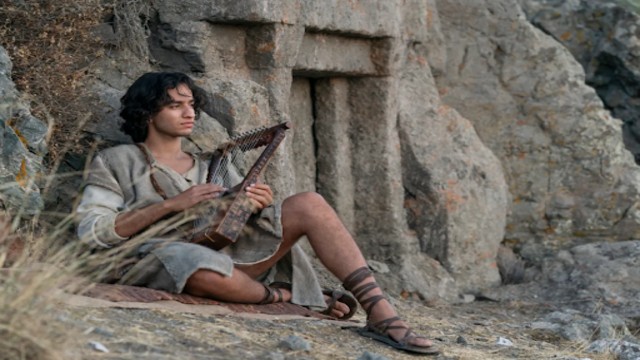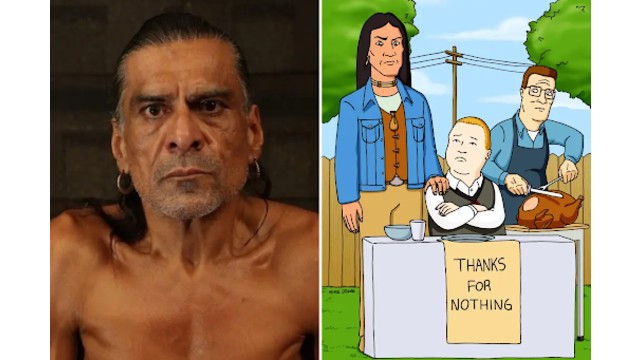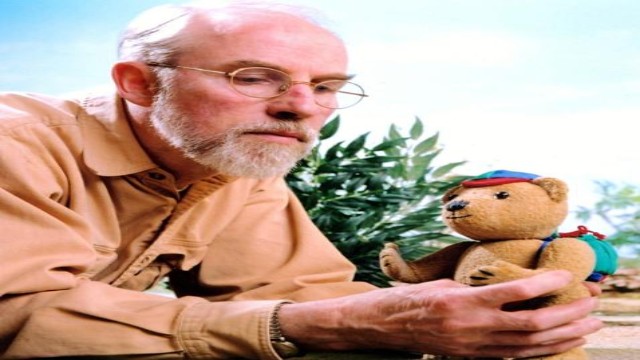
Scene from House of David. Courtesy of Prime Video
Amazon is strengthening its commitment to faith-based entertainment with House of David, a new series streaming on Prime Video. The show serves as a prequel of sorts to The Chosen, the successful drama about Jesus Christ, but operates independently. House of David delves into the origins of King David, one of the Bible’s most iconic figures, offering a fresh take on his rise to power.
Faith Meets Prestige TV
The Bible, particularly the Old Testament, is packed with compelling narratives—violence, betrayal, and redemption—all elements of gripping television. Unlike The Chosen, which grew through grassroots crowdfunding and an independent distribution model, House of David is entering the mainstream via Amazon's powerful platform.
Christian filmmaker Jon Erwin, through his studio The Wonder Project, spearheaded the production. While The Chosen’s creator, Dallas Jenkins, has a stake in The Wonder Project, he is not directly involved in House of David.
Epic Storytelling with a Familiar Formula
The eight-episode series begins with David’s famous showdown with Goliath before flashing back to his humble beginnings as a shepherd. It explores the political and spiritual turmoil within the Kingdom of Israel, ruled by King Saul (Ali Suliman), who descends into instability after losing divine favor. The Prophet Samuel (Stephen Lang) declares that David is the chosen successor, setting the stage for intense power struggles.
The show mirrors the style of popular historical and fantasy dramas. The depiction of shifting alliances and royal intrigue has drawn comparisons to Game of Thrones. Saul’s paranoia, conflicts within the court, and David’s journey to kingship provide plenty of drama.
Amazon’s Strategy: Tapping Into a New Audience
Amazon has been investing heavily in epic productions, from The Wheel of Time to The Lord of the Rings: The Rings of Power. By adding House of David to its lineup, Prime Video is appealing to a largely untapped audience—viewers interested in Judeo-Christian content.
Hollywood often leans into secular storytelling, leaving faith-based audiences underserved. Amazon’s move appears to be a strategic effort to cater to this demographic, similar to how its platform has embraced conservative-leaning action thrillers like Jack Ryan and The Terminal List.
A Mixed Execution
Despite its grand ambitions, House of David falls short in some areas. The show lacks the layered character development that could make its historical figures feel relatable. David (Michael Iskander) comes across as a generic hero, defined only by his musical talents. The supporting cast, while diverse, struggles with inconsistent accents, making the dialogue feel uneven.
The production values are also a point of contention. While filmed in the Mediterranean, the series often feels visually underwhelming. Saul’s hallucinations, meant to depict his unraveling mind, quickly become repetitive. Even David’s romance with Mychal (Indy Lewis), Saul’s daughter, lacks depth, feeling more like a plot necessity than a compelling love story.
Will It Stand the Test of Time?
House of David assumes its audience is already invested in the biblical story. However, it fails to offer a fresh perspective, which is crucial for keeping viewers engaged. Unlike Shōgun, which successfully transported audiences to feudal Japan, House of David does little to immerse viewers in the ancient world.
With its blend of biblical storytelling and mainstream production, the series has potential. However, without stronger character arcs and more immersive world-building, it risks being forgotten in the vast sea of streaming content.
The first three episodes of House of David are now available on Amazon Prime Video, with new episodes releasing weekly on Thursdays.















